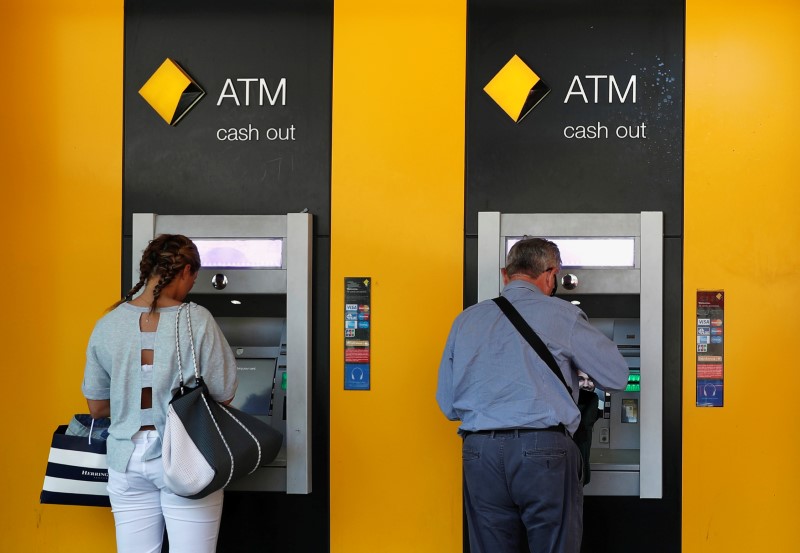By Paulina Duran
SYDNEY (Reuters) - Australian banks are making the most of ample cash during the coronavirus pandemic - driven by government wage subsidies, capital raisings, and higher individual deposits - to repay their debt as part of a long-held drive to bolster finances.
As the economy benefits from fiscal and monetary stimulus, companies raising capital to secure balance sheets have deposited more funds at banks, while workers have moved retirement savings into cash early.
This has allowed Australian banks to fund loans with less debt while driving bank funding costs lower - which helps offset the hit to profits from falling yields.
The deposits in the country's banks grew nearly 12% to a record A$2.29 trillion ($1.65 trillion) in the year to June 30, official data shows, while loans only increased 3% in the same period, creating excess liquidity.
"The banks are flush with cash," said Brad Scott, head of debt capital markets at Bank of China in Sydney.
In the four months since the COVID-19 outbreak, banks have accumulated about A$145 billion of excess deposits, and about A$95 billion of more costly term debt has been repaid, according to Citigroup Inc (NYSE:C).
At the Commonwealth Bank (AX:CBA), which finances one in every four home loans in the country, 74% of the bank's loans were funded by deposits in the year to June, up from 69% a year earlier, while smaller peers are also relying on less debt for funding, their accounts show.
Unusually, the big four banks, which hold over 80% of all deposits, have not had to issue senior bonds since February. Ample demand amidst the dearth of issuance from big banks is pushing their credit spreads over the benchmark rate to near record lows.
Banks would only have to offer about half of the 80-to-90 basis point spread historically offered to issue 5-year debt, based on secondary bond prices.
"If they were to issue a bond, notionally they would price around that level, the question is whether they do need that money (at all), even at the cheaper level," Scott added.
Banks also have access to an extra A$154 billion three-year funding facility priced at only 0.25% from the central bank.
Investors meanwhile are buying bonds from non-financial firms like local retailer Coles Group (AX:COL) and electricity distributor Ausgrid to safeguard balance sheets, which in turn end up as deposits at banks.
Overall, analysts say the huge liquidity, combined with the low funding rates, are a net negative for banks because they are not earning much out of the cash.
It is "only a small benefit because the available spread on those deposits is shrinking," said Matthew Wilson, a senior banking analyst at Evans and Partners.
For a graphic on Australian banks' balance sheet dynamics:
https://graphics.reuters.com/AUSTRALIA-BANKS/FUNDING/jbyvrqrdmpe/chart.png
